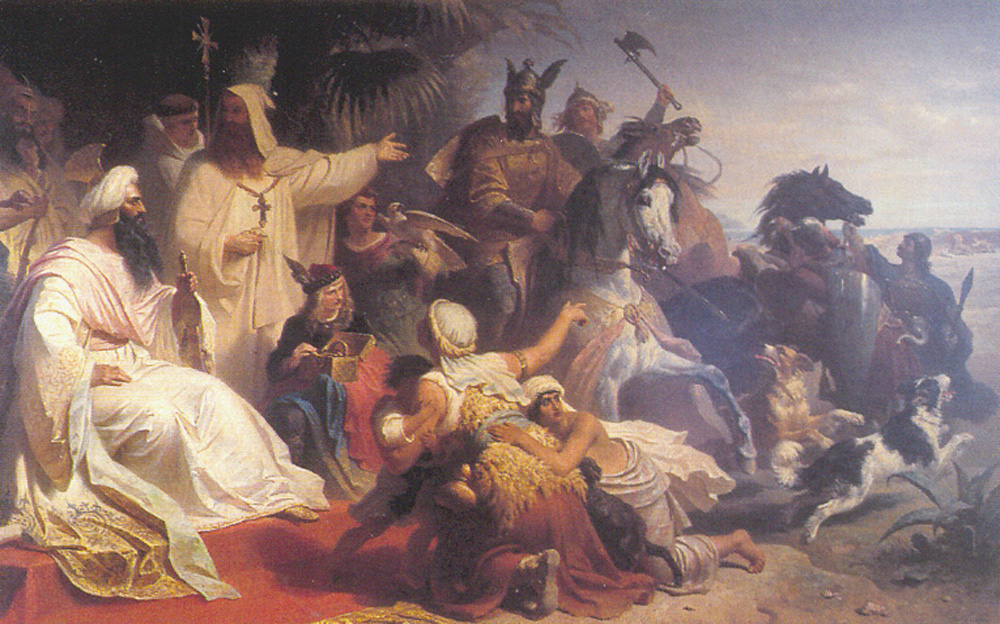Leadership and the lessons from an empire in decline – in 10th century Baghdad

Caliph Harun Al Rashid receives a delegation sent by Charlemagne, the Holy Roman Emperor, to Baghdad. The 19th century oil on canvas by Julius Kockert is at the Maximilianeum Foundation in Munich
The pandemic is the first global crisis in more than 50 years where no country is looking towards the US for leadership.
Two things are vital during a global pandemic – a vaccine and leadership. A vaccine isn’t expected at least for a year – so what about leadership?
Trump-led America is an empire in decline and can do little to help itself, let alone anyone else. In the end it will matter little whether Donald Trump is a symptom or cause of America’s loss of moral clarity, executive efficiency and the will to lead.
With the hindsight of history, it will become clear that when the US elected Trump as its 45th president, it sealed its fate as a waning power with neither ability nor authority.
The election (or selection) of a leader matters enormously, something recognised by Plato in Athens in the fourth century BC and Arab philosopher Al-Farabi in 10th century Baghdad.
Just like 21st century America, the Abbasid caliphate was an empire in decline in the 10th century. At its height, the caliphate was a hegemon, just like America.

The Abbasid Empire stretched 6,500 kilometres from east to west and enjoyed fabled wealth and enormous admiration for its unusual and attractive project, which bore similarities to the US. The Abbasid caliphs had created a Muslim commonwealth, a multi-ethnic empire and a cosmopolitan, economically thriving entity.
However, from the late eighth century the caliphate had suffered political reverses. Its western provinces – Morocco, Tunisia and Egypt – had gradually broken away. The caliphate’s revenues had started to decline from the second half of the ninth century – some say earlier, following the death in 809 of Harun Al-Rashid, a legend in the West from the One Thousand And One Nights tales.
The fall in revenue was caused by a revolt among East African slaves in Basra; distant governors’ decisions to invest taxes locally; and the rise in conversion among non-Arab subjects to Islam, which reduced the amount of poll tax collected.
But what really felled the caliphate was its lack of leadership. The consequences of not having an ideal ruler had long been on display in the caliphate.
Unsurprisingly, Al-Farabi, who is considered to have built the system of Arab philosophy, tackled the issue of leadership. The ideal ruler, he wrote, is like “the most virtuous kings, the righteous rulers and the leaders of the right way and of truth”. The ideal ruler “had to be a philosopher”, Al-Farabi wrote, as did Plato.
Al-Farabi added: “If at a given time it happens that philosophy has no share in the government, though every other qualification for rule may be present, the perfect state will remain rulerless, the actual head of the state will be no true king and the state will head for destruction; and if no wise man is to be found and associated with the acting head of the state, then after a certain interval the state will undoubtedly perish.”
The lessons from 10th century Baghdad are dreadfully relevant to 21st century America.
Originally published in The Focus

